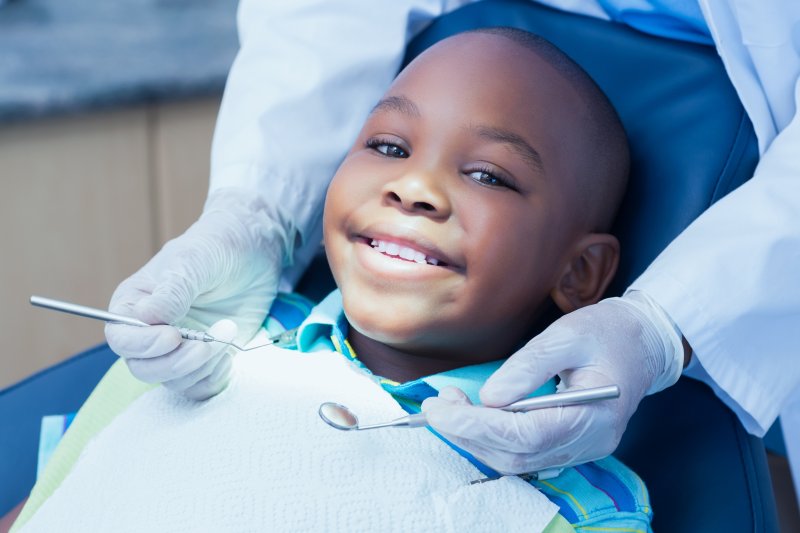
Worried the information you’re reading on various forums about children’s dentistry and hearing from friends and family might not be entirely accurate? The unfortunate reality is that there is much misinformation out there that often leads parents to make ill-informed decisions about their child’s oral health. A pediatric dentist is here to expose three of the most common myths about children’s dentistry in Garland, allowing you to feel more confident and comfortable choosing the right treatment for your little one.
Myth #1: Kids Shouldn’t Chew Gum
Depending on your child’s age, chewing gum is good for young teeth as long as it doesn’t contain any sugar. There are many brands available that taste just as good and can minimize the risk of your child developing cavities as a result of the sugar that is found in most chewing gums. Instead, sugar-free options keep bacteria from forming and causing harmful acids to break down tooth enamel. As long as your child is old enough to not immediately swallow chewing gum, this special treat can help to stimulate saliva production, which is also helpful at combatting cavities.
Myth #2: Fruit Juice in a Sippy Cup Isn’t Bad for My Child
This is one myth that many parents have gotten wrong over the decades. First, fruit juice contains high amounts of sugar, which can lead to dental caries. Second, when placed in a sippy cup, it allows for a child to actually sip the juice instead of actually drinking it. This means the liquid stays on their teeth longer, encouraging bacteria and acids to eat away at their tooth enamel. This problem can worsen should you choose to give your child a sippy cup full of juice when going down for a nap. Your little one should drink water, as it will not harm their teeth and ensures they stay hydrated.
Myth #3: Children Don’t Need Help When Brushing Their Teeth
Unfortunately, this one has led many parents to wonder why their children don’t get the best reports when visiting their pediatric dentist in Garland. Most kids cannot adequately clean their teeth until the age of 7 or 8. Until then, their inability to brush and clean hard-to-reach areas of the mouth (i.e., back teeth) can result in neglect if an adult doesn’t assist. Helping your child maintain good oral hygiene at home is key during these early years. While it’s important to help them become independent and show them how to properly brush and floss, you should oversee the process until you feel comfortable handing over the responsibility.
While these are only three of the many myths out there about children’s dentistry, make sure you ask your child’s dentist any questions should you come across a bit of information that just doesn’t seem right. It’s better to have the truth than fall victim to the falsehoods out there.
About the Author
Dr. Adam Preece is a board-certified pediatric dentist who earned his dental degree at The Ohio State University. Passionate about young, growing smiles, he completed a two-year residency in pediatric dentistry at Women and Children’s Hospital in Buffalo, NY. He is currently a staff member at Children’s Health Dallas/Plano. Dr. Preece and his colleagues believe in starting good oral hygiene habits at an early age, which is why they work with parents to establish healthy techniques to ensure tooth decay and gum disease stay away. For additional daily tips or to schedule a checkup, visit our website or call (972) 364-7472.
